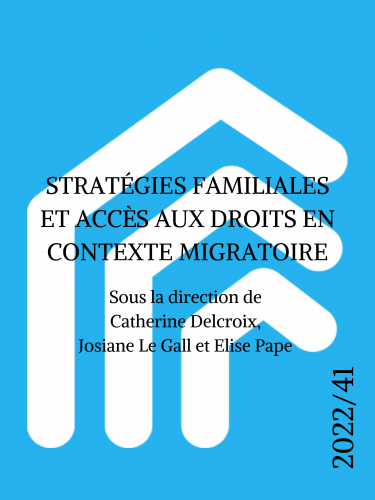Stratégies familiales et accès aux droits en contexte migratoire
Objectives: The aim of this issue of the journal is to study the way in which “making a family” influences access to rights and the integration of migrant families in Europe (France, Germany), North America (Quebec) and Djibouti, from Yemen, Syria, Tunisia, Mozambique or Brazil. Similarly, and reciprocally, he is interested in the impact of law on family experiences in a migratory context.
Methodology: The ethnographic observation approach, through the cross-referenced collection of life stories and the reconstruction of the life contexts of these migrants (while respecting their words and their anonymity) makes it possible to discover, sometimes in a counter-intuitive way, the effects of the policies on their lives.
Results: It often happens that within the same migrant family the legal status of its members is different, and therefore their rights to be regularised or not. As a result, these families – and more broadly, entire groups of migrants – have to carry out important work in terms of information for access to residence rights, work, access to schooling for their children, health, nationality, etc. Nothing is guaranteed a priori. Nothing is guaranteed a priori.
Conclusion: We can imagine how much migration will continue in the face of climate change and political unrest throughout history. It is likely that a policy evaluation approach, or lack thereof, by those affected, will be increasingly necessary in the future.
Contribution: This thematic issue of the journal Enfances Familles Générations highlights, from a historical and comparative approach, the impact of the legitimacy of being part of the national community to which these men and women have migrated (Destremau, 2022).
Expertise
Families, parenthood and perinatal careMembers and SHERPA Teams

Josiane Le Gall
In-House Researcher, SHERPA University Institute, CIUSSS Centre-Ouest-de-l'Ile-de-Montréal

